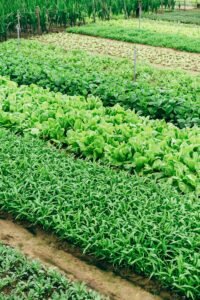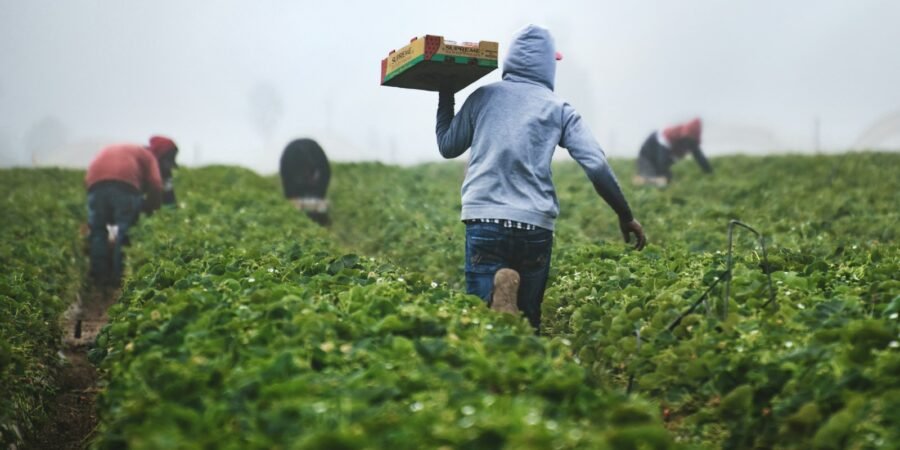Sustainable Agriculture: How Small Farms Are Changing the Food Industry
In a world dominated by industrial farming and mass food production, sustainable agriculture is emerging as a game-changer—and small farms are leading the charge. Unlike conventional farming, which often relies on chemical inputs and large-scale monocultures, sustainable agriculture focuses on environmental health, economic profitability, and social equity.
Small farms, often family-owned, are proving that it’s possible to grow food without depleting natural resources. They prioritize soil health, biodiversity, and ethical labor practices, reshaping how we think about food production. But how exactly are these small-scale farms transforming the industry? And why should consumers care?
In this article, we’ll explore:
✔ The principles of sustainable agriculture
✔ How small farms are making a big impact
✔ The challenges they face
✔ Why supporting them benefits everyone
Let’s dig in!
What Is Sustainable Agriculture?

Sustainable agriculture is a farming method that meets current food demands without compromising future generations. It focuses on:
-
Soil Health – Using crop rotation, composting, and reduced tillage to maintain fertile land.
-
Water Conservation – Implementing drip irrigation and rainwater harvesting.
-
Biodiversity – Growing multiple crops and raising livestock in harmony with nature.
-
Renewable Energy – Utilizing solar, wind, or biogas to reduce carbon footprints.
-
Fair Labor Practices – Ensuring farmers and workers earn livable wages.
Unlike industrial farming, which often prioritizes short-term yields, sustainable agriculture seeks long-term balance between people and the planet.
How Small Farms Are Leading the Sustainable Agriculture Movement
1. Prioritizing Organic & Regenerative Farming
Many small farms avoid synthetic pesticides and fertilizers, opting instead for organic and regenerative practices. These methods:
-
Rebuild topsoil (which industrial farming has degraded)
-
Capture carbon from the atmosphere, fighting climate change
-
Produce nutrient-dense food without harmful chemicals
Example: A small farm in Vermont uses cover crops like clover to naturally enrich the soil, reducing the need for artificial inputs.
2. Supporting Local Food Systems
Small farms often sell directly to consumers via:
-
Farmers’ markets
-
Community-Supported Agriculture (CSA) programs
-
Farm-to-table restaurants
This cuts out middlemen, ensuring fresher food and fairer pay for farmers.
3. Reducing Food Waste
Large-scale agriculture often discards “imperfect” produce, contributing to 40% of food waste in the U.S. Small farms, however, sell “ugly” fruits and vegetables, use scraps for compost, and encourage nose-to-tail or root-to-stem eating.
4. Promoting Biodiversity
Industrial farms typically grow one crop (monoculture), making them vulnerable to pests and disease. Small farms, however, grow diverse crops and heritage breeds, which:
-
Strengthen ecosystems
-
Provide resilience against climate shocks
-
Preserve rare seed varieties
Challenges Facing Small Sustainable Farms
Despite their benefits, small farms in sustainable agriculture face hurdles:
✔ High Land Costs – Rising property prices make it hard for new farmers to start.
✔ Limited Access to Markets – Big retailers favor large suppliers.
✔ Labor-Intensive Work – Sustainable farming often requires more hands-on effort.
✔ Consumer Awareness – Many shoppers still prioritize cheap prices over sustainable practices.
Why Supporting Sustainable Agriculture Matters
When you buy from small sustainable farms, you:
✅ Eat healthier food (fewer pesticides, more nutrients)
✅ Boost local economies (money stays in the community)
✅ Protect the environment (less pollution, more wildlife habitats)
✅ Ensure food security (diverse farms adapt better to climate change)
You have Agricultural products to sell? Clickhere
FAQs About Sustainable Agriculture
1. Is sustainable agriculture more expensive?
Initially, yes—organic and regenerative practices can cost more. However, long-term benefits (like healthier soil and reduced healthcare costs from chemical-free food) make it a worthwhile investment.
2. Can sustainable agriculture feed the world?
Yes! Studies show small diverse farms can be just as productive as industrial farms, especially when using agroecological methods. The key is efficient land use and reduced waste.
3. How can I support sustainable agriculture?
-
Shop at farmers’ markets
-
Join a CSA program
-
Choose organic & locally grown food
-
Reduce meat consumption (or buy from ethical farms)
4. What’s the difference between organic and sustainable farming?
Organic farming avoids synthetic chemicals, but sustainable agriculture goes further by focusing on soil health, water conservation, and fair labor.
Conclusion: The Future of Food Is Sustainable
Sustainable agriculture isn’t just a trend—it’s a necessity. Small farms are proving that we don’t need harmful chemicals or exploitative practices to feed the world. By supporting these farmers, we invest in:
🌍 A healthier planet
💪 Stronger communities
🍎 Better food for future generations
The next time you grocery shop, ask: Where does my food come from? Your choices shape the future of farming.


Leave a Reply